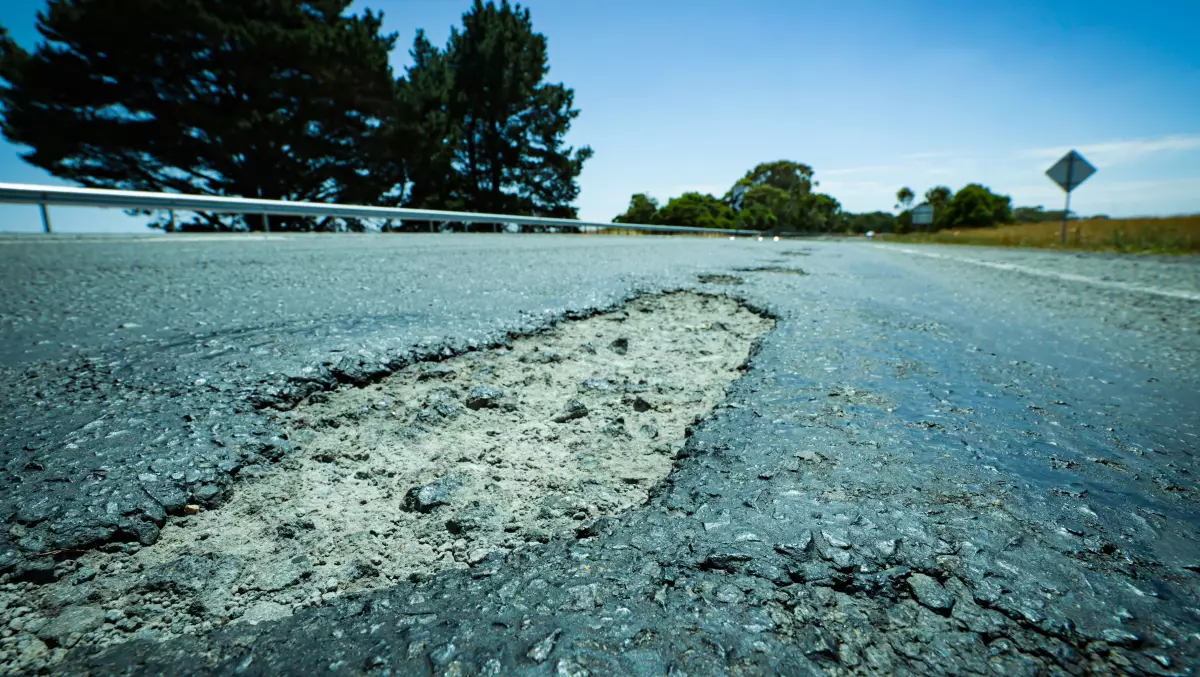Victoria’s crumbling roads: does your federal MP want transparent funding?
This article was originally published on The Standard on Friday, 28 March and written by Ben SIlvester.

Just three of regional Victoria’s 13 federal MPs support publishing data that would ensure road funding goes where it is needed most.
The Victorian government collects detailed “AusRAP” data on the condition of the state’s roads, and has agreed to share it with the federal government.
But neither level of government is prepared to make the data public.
In the past month, the federal government has also announced billions in road funding for Victoria, with Melbourne to get 19 times more than the rest of the state.
The lopsided “cash splash” has prompted demands from several regional politicians to publish the data for the roads getting funding.
The Australian Automobile Association (AAA) has also launched a My Safety Counts campaign, asking politicians to commit to publishing the AusRAP data for all road projects.
So ACM – publisher of this masthead – asked every regional Victorian MP, plus several opposing candidates in marginal seats, whether they supported the move.
Why does transparency matter?
AAA managing director Michael Bradley said as the national road toll hits 50-year highs, Australians deserved to know which roads weren’t safe.
“Australian voters are paying for the road upgrades being announced, just as they have paid for the safety assessments being kept secret,” Mr Bradley said.
The AusRAP ratings essentially provide a guide to which roads need funding most urgently.
They look at a range of factors like road condition, shoulder width, hazards and line marking to produce a score out of five.
A five-star road is the safest, while a one-star road is the most dangerous.
Each additional star halves the risk of death or serious injury, so a one-star road is 16 times riskier than a five-star road.
“Our polling continuously shows Australians are concerned that political imperatives outweigh community safety implications when funding choices are made,” Mr Bradley said.
“Baking the publication of AusRAP ratings into Australia’s opaque road funding processes will finally show Australians whether project announcements are grounded in evidence, or whether they are instead aimed at winning votes.”
What do politicians think?
ACM contacted regional Victoria’s 13 federal MPs, and four candidates in close races, and asked whether they supported the publication of AusRAP ratings for all federal road projects?
Three MPs said yes: Wannon Liberal MP Dan Tehan, Mallee Nationals MP Anne Webster, and Indi Independent MP Helen Haines.
Two candidates also said yes: Wannon Independent Alex Dyson, and Liberal Paula Doran, who is running against Infrastructure Minister Catherine King.
As Minister, Ms King has the most control over the decision to publish the data, but after more than two days she was still unable to state her position.
Bendigo Labor MP Lisa Chesters declined to answer the question.
The remaining seven MPs – Monash Independent Russell Broadbent, Nicholls National Sam Birrell, Gippsland National Darren Chester, McEwan Liberal Jason Wood, and Labor’s Sam Rae in Hawke, Libby Coker in Corangamite, Richard Marles in Corio and Rob Mitchell in McEwen – all failed to respond.
ACM understands some MPs were concerned about the “party line” on the issue.
Bendigo Nationals candidate Andrew Lethlean and Monash Liberal candidate Mary Aldgren also failed to respond.
Regional roads are ‘absolutely disgraceful’
The politicians who did respond said regional Victorians deserved to see why their roads were being neglected.
Mr Tehan said the “time has come” for state and federal governments to provide that transparency.
Dr Haines said with an election “only weeks away” the public needed to know road funding was going where it was needed most, “not where the major parties decide it has the greatest political advantage”.
Dr Webster said Victoria’s regional roads were in “appalling condition” and transparency would improve them.
Mr Dyson also said the roads were in an “absolutely disgraceful condition”, threatening “lives and livelihoods” and would be his “number one priority” if elected.
Ms Doran said if the government had used the data “diligently”, Victorians may not have “the jaw-dropping disparity on metropolitan versus regional road funding”.
While Ms Chesters refused to say whether she supported transparency, she argued the Coalition’s plan to cut “at least 36,000 public service jobs” would “have a direct impact on the Federal Government’s ability to collate, analyse and publish road condition data”.
